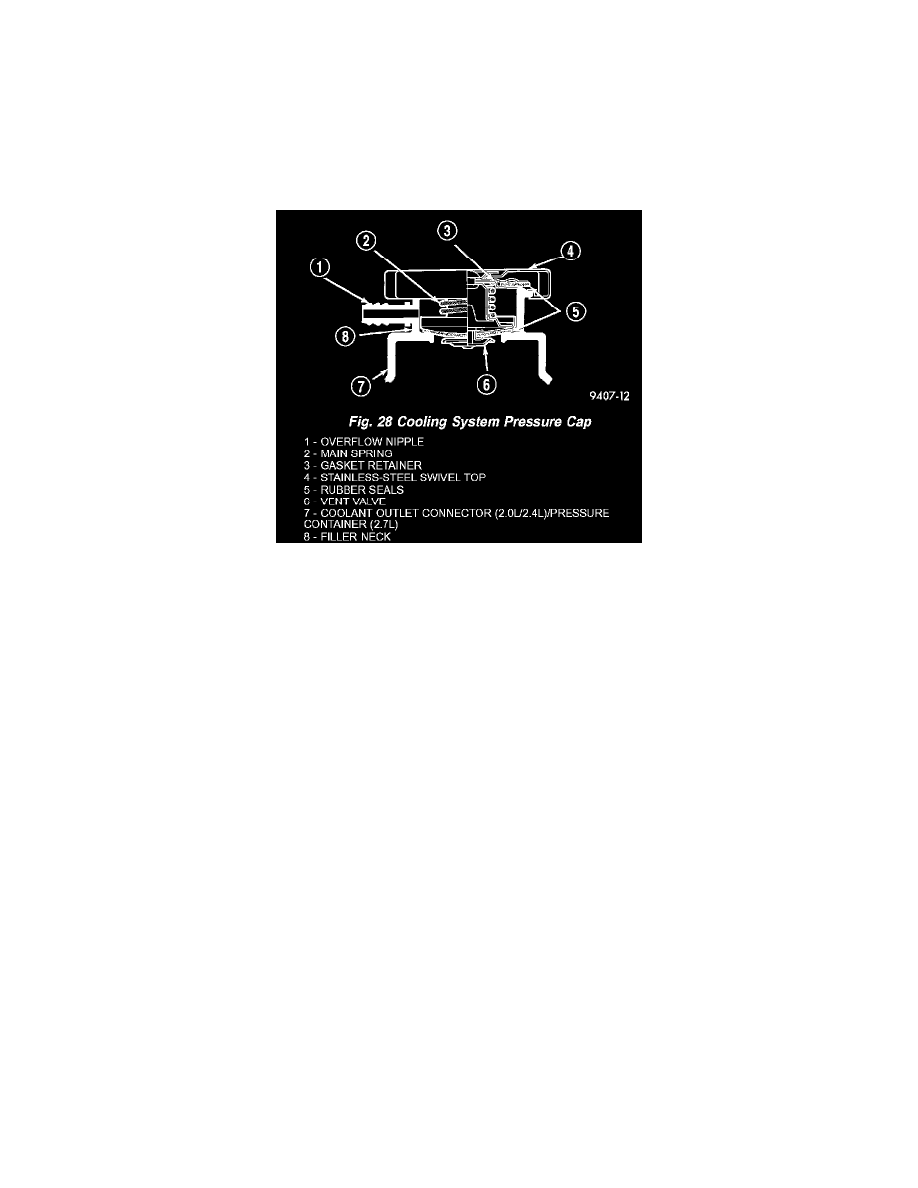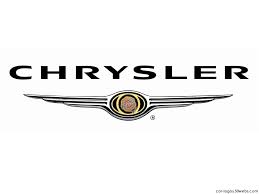Sebring LXI Convertible V6-2.7L VIN R (2002)

Radiator Cap: Description and Operation
PRESSURE CAP
DESCRIPTION
CAUTION: Vehicles equipped with 2.0L/2.4L engines use a different pressure cap than vehicles equipped with 2.7L engines. The pressure caps are
NOT interchangeable. Verify proper pressure cap part number.
The cooling system is equipped with a pressure cap that releases built up pressure, maintaining a range of 97 - 124 kPa (14 - 18 psi).
Fig. 28 Cooling System Pressure Cap
There is also a vent valve in the center of the cap. This valve also opens when coolant is cooling and contracting, allowing coolant to return to radiator
from coolant reserve/recovery system container by vacuum through connecting hose. If valve is stuck shut, the radiator hoses will be collapsed on cool
down. Clean the vent valve to ensure proper sealing when boiling point is reached.
OPERATION
CAUTION: Vehicles equipped with 2.0L/2.4L engines use a different pressure cap than vehicles equipped with 2.7L engines. The pressure caps are
NOT interchangeable. Verify proper pressure cap part number.
The pressure cap allows the cooling system to operate at higher than atmospheric pressure. The higher pressure raises the coolant boiling point; this
allows increased radiator cooling capacity.
The gasket in the cap seals the filler neck, so that vacuum can be maintained, allowing coolant to be drawn back into the cooling system from the
reserve container.
